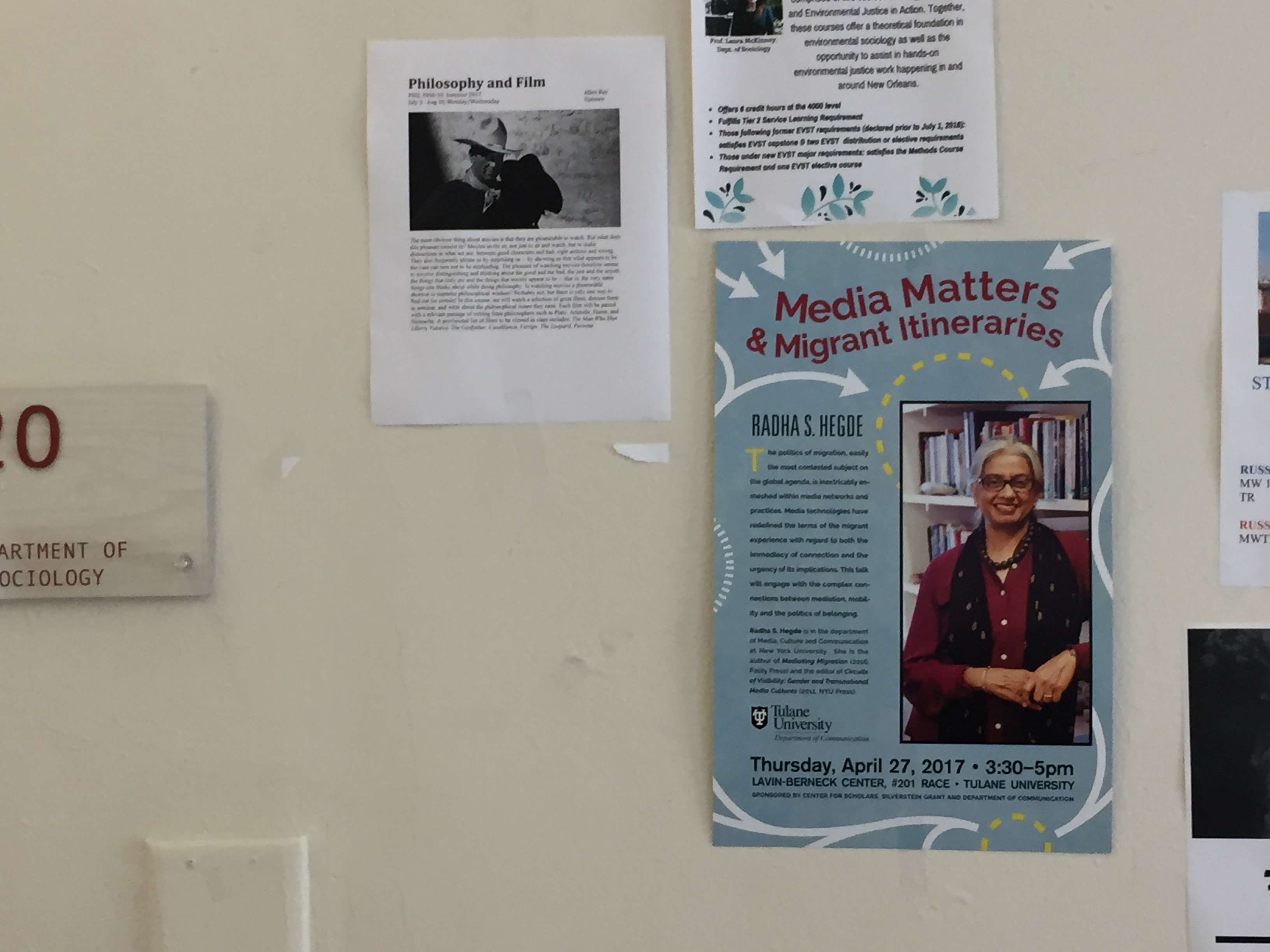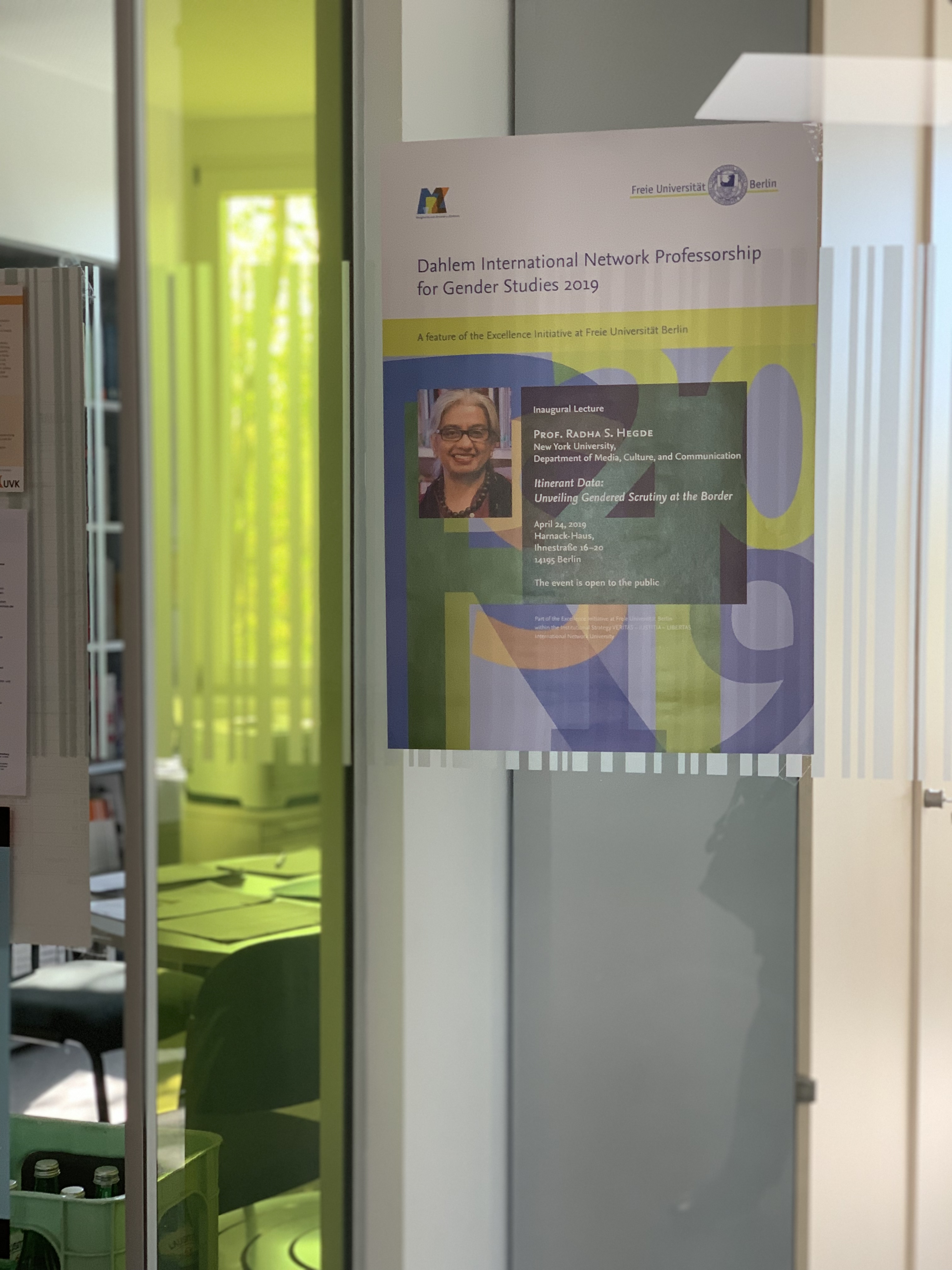Professor Hegde has designed and taught the following courses at New York University:
.
Undergraduate
- Narrating Migration: Stories about migrants and the politics of migration have been told across media forms, platforms and genres. Depending on the registers used and the location from where viewed, migration is increasingly perceived and narrated as a national or global crisis, a humanitarian emergency, an ideological minefield or as the struggles or successes of individuals. In the context of the current global pandemic, borders and mobility have become key topics. Questions of mediation profoundly shape the circulation and the contours of the narrative regarding migration. Through a critical examination of a variety of migration narratives, this course will discuss the shaping of the global imaginary about diaspora, relocation and mobility in diverse global contexts. The course will culminate in a media project where students produce their own digital media narratives of migration.
- A version of this course has been taught in NYU Abu Dhabi
- Immigrant Imaginaries: Immigration is one of the most controversial topics of our times. Images of migrants fleeing, suffering precarious journeys or dying have become emblematic of the global present. Recent political discourse in the United States and Europe has represented immigrants in registers of crisis, as undesirable individuals, criminals, or simply as ‘matter out of place’. This course examines the ways in which immigration and immigrants are imagined, represented, visualized and debated at key moments in recent history. How are these images and accounts of threat and contamination sustained by the imagined idea of the nation, as both racially homogenous and territorially defined?
- Media and Migration: This course examines how media forms, platforms and practices enable a re-imagining of national belonging, identity and community in the context of migration. Using a variety of theoretical and ethnographic texts, students will engage with issues of mobility, identity and visibility. We will examine 1) how media and technology impact and transform the experience of migration and 2) how refugee/ immigrant lives are defined in public discourse at key historical moments.
- Gender, Sex, and the Global
- Global Crises and Media

Graduate
- Globalization, Media and Circulation: This course examines the cultural and political formations of globalization as it is enabled and accelerated by media and technology. In the year 2000, Anthony Giddens used the term “runaway world” to describe the global context. In light of current geopolitics and the advances in technological connectivity, this course will address the assemblages and processes that underwrite the runaway quality of the global present and create its cultures and circuits of circulation. Through close readings of theoretical and ethnographic texts regarding a wide range of topics including migration, urbanization, consumption, nationalism, we will engage with the material configurations and politics of circulation.
- Media, Migration and the Global City: This course examines migration, mobility and the role of media and technology in redefining cultural borders and citizenship. We will discuss how the presence and representation of migrants and immigration reconfigure visions of national belonging. How are migrants imagined and surveilled in global urban contexts? How do media and technology enable the (re)imagining of transnational communities and cultural politics? Through discussions and lectures, students will engage with changing urban landscapes and emerging networks of migration.
- Versions of this course have been taught in NYU global sites London and Berlin.
- Globalization and Media Cultures: This course examines the cultural and political formations of globalization as it is enabled and accelerated by media and technology. In light of current geopolitics and the advances in technological connectivity, this course will address the assemblages and processes that underwrite the runaway quality of the global present and create its cultures and circuits of circulation. Students will be exposed to debates and theoretical framings of globalization through an examination of the themes of modernity, mobility and locality.
- Globalization and Gender: This course examines how gender and sexuality are being reconfigured in the context of globalization and transnational flows. We will examine key texts drawn from feminist/global cultural studies and engage with topics concerning citizenship, modernity, global labor flows, migration, militarization, neoliberalism and the construction of the global subject of feminism. Through a close reading of theoretical texts and case studies, we will track the politics and performance of gender and sexuality within transnational and mediatized environments.
- Neoliberal Feminism & Media
- MA Thesis Writing Seminar
